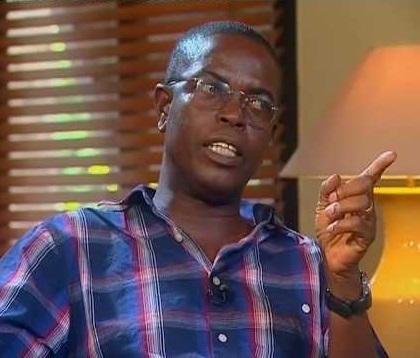The Managing Editor of the Insight Newspaper Kwesi Pratt Jnr has described as irrelevant the debate sparked by the Speaker of Parliament Professor Mike Ocquaye about the role of Dr JB Danquah in the independence struggle of Ghana.
According to him, there are serious issues in the country such as the fall armyworm invasion and the state of the economy which needs to be addressed rather than an attempt to rewrite the history of the country.
Speaker Prof. Mike Ocquaye at a public lecture on the 4th of August to mark the 70th anniversary of the formation of the UGCC disputed the sole role of Dr Kwame Nkrumah in the attainment of independence for Ghana. He highlighted and attributed some major efforts to the independence of Ghana to Dr JB Danquah.
The statement of the speaker did not go down well with most Nkrumahist and sympathisers of the former President.
Speaking on RadioGold’s ‘Alhaji&Alhaji’ Mr Pratt lamented the public display of party colours and bias by the Speaker of Parliament. He indicated that throughout the Fourth Republic, Professor Mike Ocquaye has been the only Speaker who has publicly displayed his bias.
He questioned how he[speaker] will play his role as a referee if a bill about Founder’s Day had being presented on the floor of the House.
Sharing his thought on whether or not the Founder’s Day should be celebrated on August 4 or September 21, Kwesi Pratt Jnr said the 4th of August was the day for the formation of the UGCC but the party collapsed way before the attainment of independence so the argument of making August 4 Founder’s Day is a non-starter.
He further stated that the statement of the Speaker formed part of the effort by some individuals since 1948 to demonise Kwame Nkrumah and remove his name from the history of the country. History should be used to unite us but not to rather divide us, he concluded.
Â
Â





